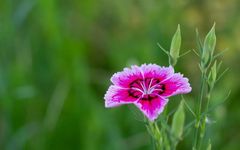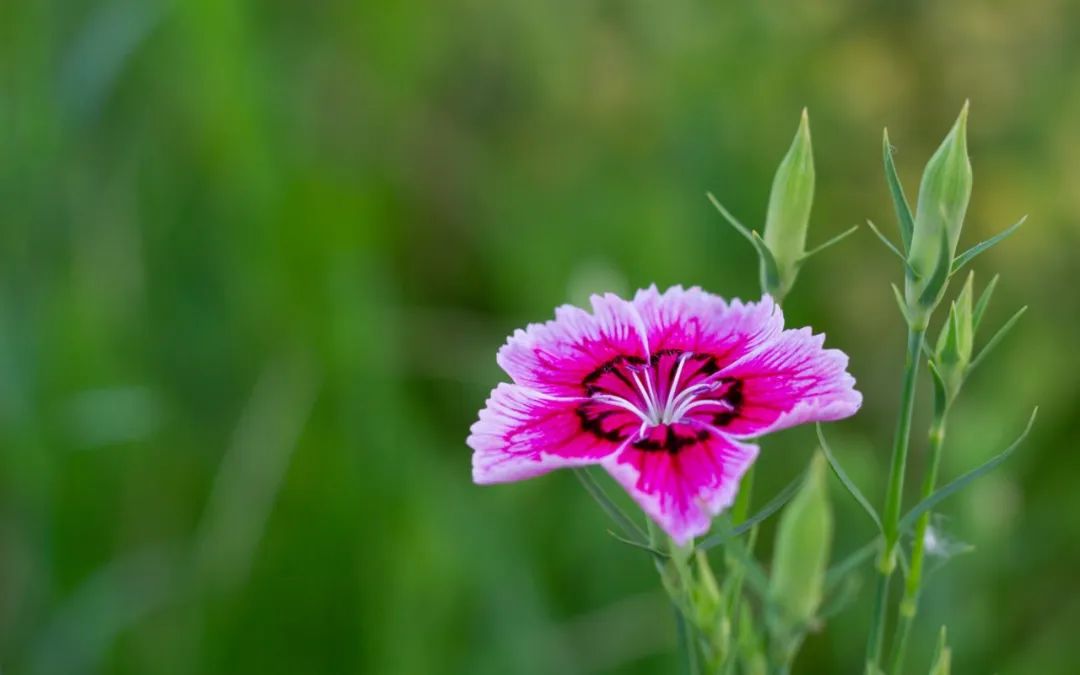【Disclaimer】The content is sourced from the internet. If there is any infringement, please contact us for removal!
The voice is synthesized by software; please forgive any poor experience.
Source: Huofaer Yangzheng Studio

Ginger — Releases the Exterior and Dispels Cold
The Medicine King Sun Simiao said: “As a physician, one must first understand the source of the illness, know what has been offended, and treat it with food. If food does not cure it, then one may prescribe medicine.” This means that for diseases, our first choice of treatment should be food; if food therapy fails, then we resort to medicine.
So, how do we choose food? The first step is to clarify the state of the body. Understand whether one has Yin deficiency with internal heat or Yang deficiency with internal cold, and then clarify the Yin-Yang and cold-heat properties of foods. Finally, if it is hot, use cold foods; if it is cold, use hot foods to regulate the body’s Yin and Yang.
In the previous section, we introduced ten Yin foods; in this section, we will introduce ten Yang foods. Among the ten Yang foods, the first is undoubtedly ginger.
Ginger is pungent, warm in nature, and has a fragrant and light aroma, making it a typical Yang food.
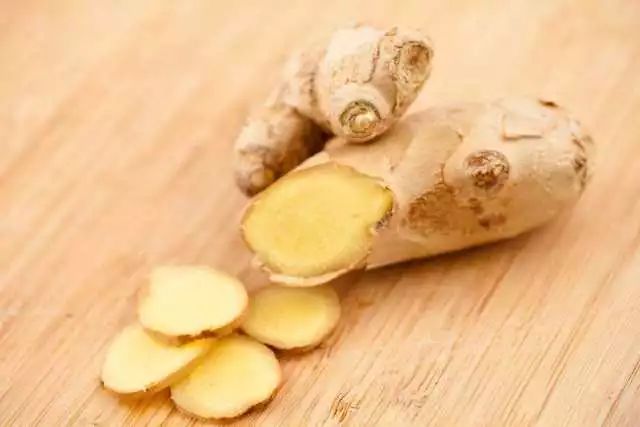
Remember, the greatest characteristic of Yin foods is their cold and cool nature, with a bitter taste and downward medicinal properties. When the Yang Qi in the body is too strong and there is excessive internal heat, we can use Yin foods to lower the Yang Qi, thus achieving Yin-Yang balance; whereas the greatest characteristic of Yang foods is their warm and hot nature, with a pungent taste and upward medicinal properties. Their main function is to elevate the Yang Qi in the body.
Therefore, when the Yin Qi in the body is too strong and there is excessive internal cold, we can use Yang foods to enhance Yang Qi and warm the meridians to dispel cold.
The greatest function of ginger is to promote Yang and disperse Qi. People often say: “Radish in the morning, ginger in the evening, no need for a doctor’s prescription.” This means that in the morning, when the Yang Qi of the body rises, consuming ginger, which is purely Yang, can help stimulate the Yang Qi, promote the circulation of Qi and blood, and keep one energized throughout the day.
Moreover, due to ginger’s dispersing effect, when people are afflicted by wind-cold, they can boil ginger in water to dispel the cold from the surface of the body.
At the same time, if a person is cold, causing heat expansion and cold contraction, the Qi in the body may become stagnant and immobile, leading to vomiting and belching. In such cases, I often recommend drinking ginger water, as ginger is pungent, light in Qi, and has a strong dispersing effect. Once the stagnant Qi in the body disperses, the illness naturally resolves. Thus, Traditional Chinese Medicine often refers to ginger as the “sacred medicine for vomiting and belching.”
It is important to note that those with Yin deficiency and excessive fire, red tongue with yellow coating, or red eyes with internal heat should avoid ginger.
Leek — Tonifies the Kidneys and Raises Yang
Leek, also known as “Yang-raising grass,” clearly indicates from its name that it is undoubtedly a Yang food. It is warm in nature, pungent in taste, and has the effect of tonifying the kidneys and raising Yang. Therefore, there is a saying in folk culture: “Men do not part with leeks, women do not part with lotus root.” Leeks belong to Yang, making them suitable for men to consume to enhance Yang; lotus root belongs to Yin, thus suitable for women to consume to nourish Yin.
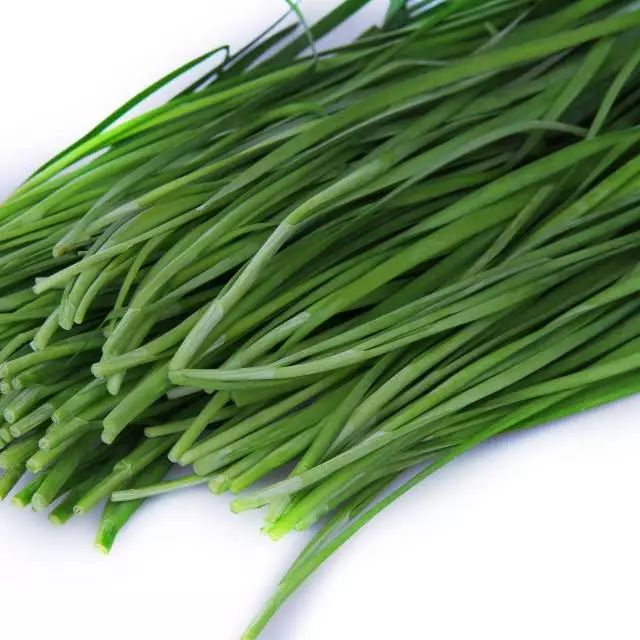
Leeks are suitable for those with a cold constitution to consume in larger quantities. However, those with stomach deficiency and heat, or Yin deficiency with excessive fire, should avoid leeks.
Leeks are best consumed in spring. “Eat fragrant in spring, eat smelly in summer.” In spring, when the liver wood is active and Yang Qi is rising, consuming leeks is beneficial for tonifying the spleen and stomach Qi, which in turn nourishes the overall Qi of the body, helping to maintain the balance of Yin and Yang during the chilly spring weather.
Fennel — Warms the Lower Abdomen
Fennel can eliminate the fishy smell of meat and enhance the aroma of meat dishes, hence its name “fennel.” Note that there are two types of fennel — one is large fennel (star anise), and the other is small fennel, which resembles grains.
Small fennel is pungent, warm in nature, and enters the liver, kidney, spleen, and stomach meridians. It can warm the liver and kidneys, warm the spleen and stomach, regulate Qi, and harmonize the middle. Interestingly, it can also treat hernias, known as “small intestine Qi,” and there is a famous story about it.
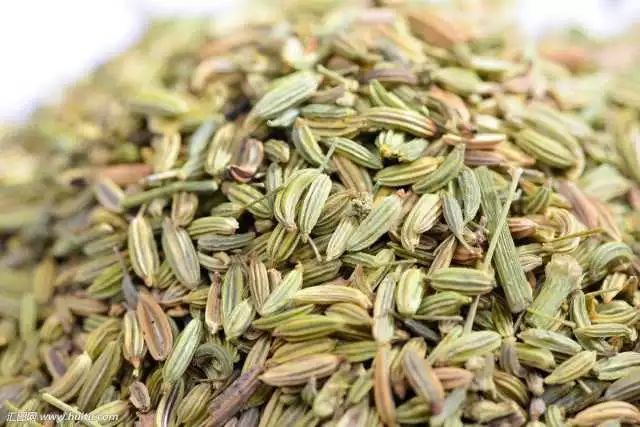
It is said that during the late Qing Dynasty, a wealthy Russian merchant named Mikhailov was touring West Lake. Just as he was enchanted by the beautiful scenery of Jiangnan, he was suddenly struck by a hernia, causing him to cry out in pain. In this emergency, the merchant’s accompanying doctor was at a loss. The boatman quickly recommended an old Chinese medicine practitioner.
When the old doctor arrived, he ground a small amount of small fennel into powder and had the patient take it with Shaoxing yellow wine. About twenty minutes later, Mikhailov suddenly felt less pain, and after a while, the pain completely disappeared. He thought the doctor had given him some rare medicine, but upon inquiry, he found it was just small fennel, and he exclaimed its miraculous effect.
It turns out that small fennel can disperse cold and stop pain, harmonize the stomach, and regulate Qi. Hernias, also known as small intestine Qi, are primarily caused by cold Qi accumulating between the small intestine, leading to lower abdominal pain and testicular swelling. Small fennel, being pungent and warm, has the function of dispelling cold Qi from the spleen, stomach, and small intestine, thus curing the wealthy merchant’s hernia. Due to its warming effect on the lower abdomen, women experiencing dysmenorrhea caused by cold can also drink small fennel decoction.
Small fennel is generally used for cold syndromes. However, if one has excessive heat in the stomach or kidneys, or excessive heat in the small intestine, using small fennel may worsen the symptoms. Therefore, those with heat toxins in the body should avoid small fennel.
Chuan Pepper — Dispels Cold and Eliminates Dampness
Speaking of Chuan pepper, people from the north may be puzzled, wondering what it is. In fact, its common name is Sichuan pepper. Those produced in Qin are called Qin pepper, while those from Shu are called Chuan pepper.
Chuan pepper is pungent, hot, and toxic, but this refers to the raw pepper. “Chuan pepper can kill those who close their mouths.”
Chuan pepper is very hot and purely Yang, entering the spleen, stomach, lung, and kidney meridians. It can warm the spleen and stomach, tonify the Mingmen (Gate of Life), disperse Yin cold, expel roundworms, relieve pain, and dry dampness, with many functions.
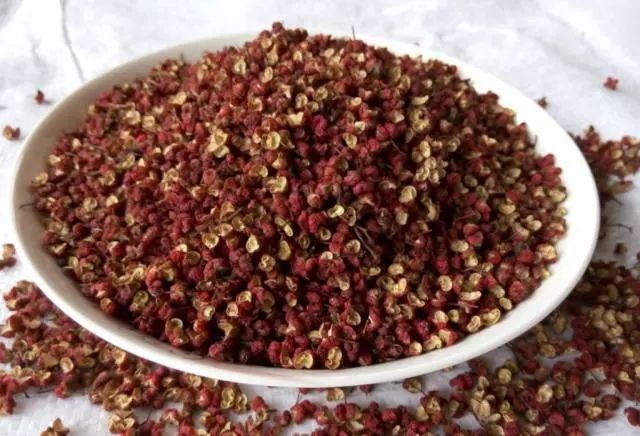
Soaking feet in water boiled with Chuan pepper can dry dampness and dispel cold. The famous TCM practitioner Shi Jinmo had a habit of soaking his feet in pepper water every night. The reason is that pepper water can expel dampness and cold, warm the spleen and stomach, and tonify the Mingmen. The spleen and stomach are the foundation of postnatal health, while the Mingmen is the foundation of prenatal health. Warming the prenatal foundation and tonifying the postnatal foundation is an important method for strengthening the body. Dampness is the most difficult evil to expel from the body, and if it lingers, it can lead to chronic illness. Therefore, Mr. Shi understood these key points and developed this health method — boiling pepper water for foot soaking.
It is recommended that everyone persist in using this method, especially friends from the south, who should definitely use it. This is because the south has abundant rainfall and heavy dampness.
Speaking of dispelling dampness, we cannot forget about chili peppers. Southerners love to eat spicy food, not only for their taste preference but also for their lifestyle needs, as it helps to dry dampness and ward off cold, maintaining the harmony of Yin and Yang in the body. However, some southerners who move to the north continue to eat spicy food and later find it unsuitable. They may develop acne and redness on their faces, which they did not experience before. This is because the environment has changed; what used to dispel dampness now only increases heat and dryness in the body, leading to an upsurge of stomach fire and consequently, acne. Similarly, northerners should use less pepper when cooking, or it will only exacerbate the imbalance of cold and heat in the body. Those with Yin deficiency and excessive fire, as well as pregnant women, should avoid Chuan pepper.
Pepper — Warms the Middle and Dispels Cold
Pepper is a pungent and hot substance. If one has cold in the body, consuming it can dispel cold; however, if one has heat or is prone to heat illnesses, consuming it can exacerbate the condition.
Li Shizhen wrote in the Compendium of Materia Medica that he had a particular fondness for pepper since childhood, to the extent that he developed eye problems every year. At that time, he did not suspect it was due to pepper, but later realized it and decided to quit this habit, which resolved his eye issues.
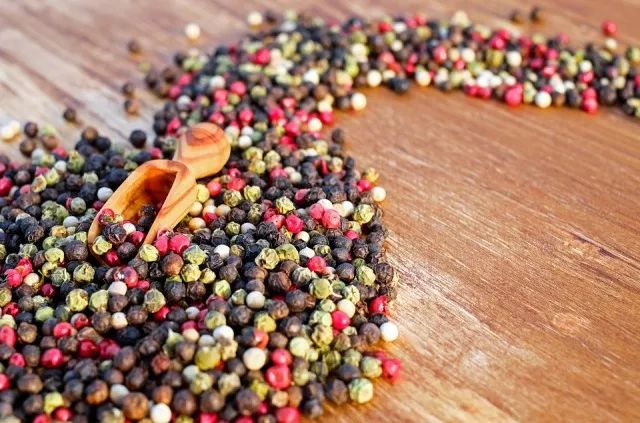
Why does pepper have these characteristics? It is because it can stimulate the generation of Yang Qi in the body. Pungent flavors disperse Qi, and hot properties promote fire, so anyone with a sore throat, toothache, or eye disease must avoid pepper.
When taking medicine, one must match the symptoms; the same goes for food. Pepper is not suitable for those with internal heat, but it is the best remedy for those with cold bodies. Pepper can warm the middle, dispel cold, and strengthen kidney Qi. If one has stomach cold, diarrhea, or is prone to cold, they can consume some pepper.
Additionally, pepper has an appetite-stimulating effect. I once wrote about Ming Dynasty physician Zhang Jingyue, who, while treating his son, knew that he needed warming and tonifying, but the child refused to take the medicine. In a moment of desperation, he thought of using pepper powder mixed in porridge, and the child indeed opened his appetite and was able to take the medicine, ultimately recovering.
Today, we can also use this method. If at any time one has a poor appetite, especially due to cold, adding a little pepper powder while cooking can help stimulate the appetite.
Pumpkin — Warms and Tonifies Spleen Qi
Pumpkin, bitter melon, carrot, tomato, garlic, and black fungus are known as the “six friends among vegetables.” Among them, bitter melon is Yin, tomato and black fungus are also Yin, while pumpkin and garlic are Yang, and carrot is neutral.
Pumpkin is warm in nature, sweet in taste, and enters the spleen and stomach meridians, which can tonify and benefit Qi, making it very beneficial for those with spleen deficiency and weak Qi. For diabetic patients, pumpkin is an excellent vegetable as it can prevent rapid spikes and drops in blood sugar, stabilizing the condition, which aligns with the TCM principle of tonifying the spleen.
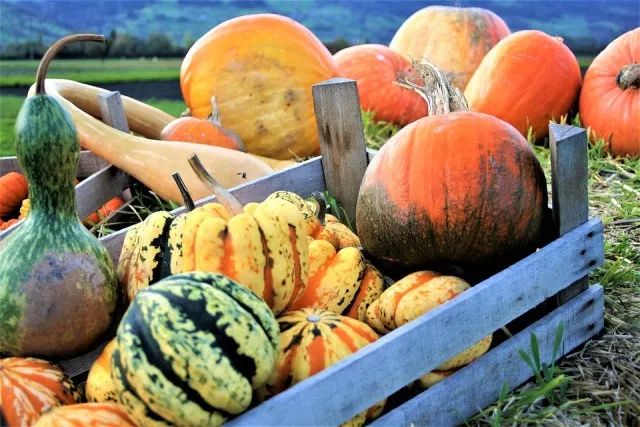
My mother once had slightly elevated blood sugar. At that time, we did not use medication for adjustment but relied entirely on food therapy, incorporating yam, pumpkin, and bitter melon into our meals. As a result, her blood sugar was very well controlled and has remained within the normal range for many years. We prepare pumpkin simply by cutting it into pieces and steaming it, which tastes sweet and is very delicious.
However, those with a hot constitution or stomach heat should consume it sparingly. Pumpkin tonifies Qi, so those with Qi stagnation and damp obstruction should also avoid or limit pumpkin consumption.
Excessive consumption of pumpkin can lead to foot diseases and jaundice. TCM emphasizes the principle of color complementing color; pumpkin is yellow, and excessive consumption can lead to jaundice. I have seen a case where a girl loved eating pumpkin and drank pumpkin porridge daily. After a while, she noticed her skin turned yellow, and her palms also turned yellow. She thought she had liver disease, but after a hospital check, there was no issue. Upon inquiry, it was discovered that she had simply eaten too much pumpkin.
Coriander — Dispels Cold and Promotes Qi Flow
When dining out, waiters often ask if you eat coriander. Some quickly say yes, while others shake their heads no. Those who love it do not need to know its benefits; they just enjoy it. However, those who dislike it might accept its flavor if they learn about its benefits.
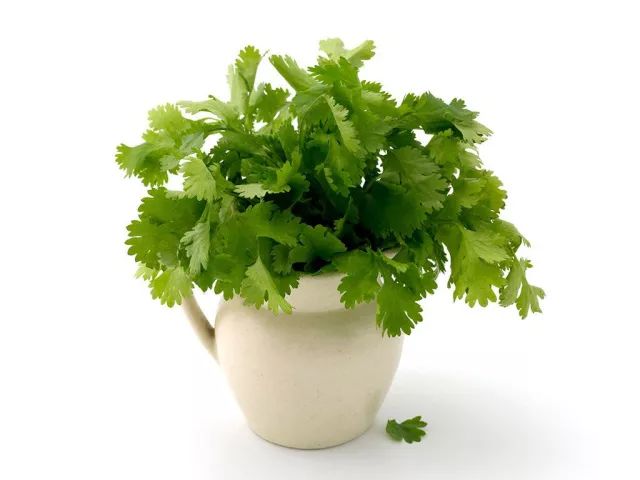
Coriander, named for its fragrance, is commonly known as “Yuan Su” in the north and is a frequently used aromatic vegetable. The stimulating aroma of coriander can release the exterior and dispel cold, especially for those with external wind-cold, as it can help induce sweating and dispel cold. This effect is similar to that of scallions.
The Compendium of Materia Medica states: Coriander is pungent, warm, and aromatic, entering the heart and spleen, and can dispel unwholesome Qi and promote the proper Qi of the heart and spleen.
However, because coriander can move Qi, it is a releasing substance. Consuming it may easily lead to the recurrence of old ailments.
Additionally, it is particularly important to note that individuals with body odor should avoid coriander, as should those with bad breath, as it may exacerbate these issues. Even those with a balanced constitution should not consume it excessively, as it can affect vision and deplete Yin and Yang Qi.
Chestnut — Warms and Tonifies the Spleen and Kidneys
Chestnuts are Yang foods and are very nourishing. Their tonifying effect can even rival that of Angelica, Ginseng, and Astragalus, but excessive consumption can lead to heat accumulation in the spleen and stomach.
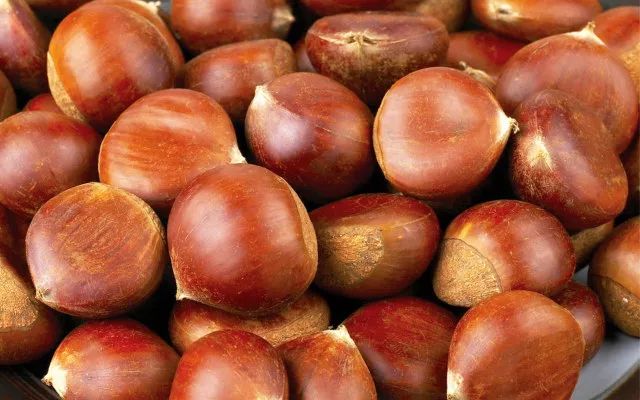
Chestnuts are warm in nature, sweet in taste, and enter the spleen, stomach, and kidney meridians. They are often referred to as “hardy crops” and “woody grains” in folk culture. For those with spleen and stomach deficiency and cold, they can tonify Qi and strengthen the spleen, and they also have kidney tonifying properties. In ancient times, chestnuts were called the fruit of the kidneys. If elderly individuals experience lower back pain due to kidney deficiency, they can consume chestnuts for nourishment. However, one must not overeat, as chestnuts are “difficult to digest when raw, and can cause Qi stagnation when cooked.” This shows that moderation is essential.
Onion — Disperses Exterior Cold
Onions, garlic, and shallots are often disliked by many due to their strong odor, which can make others avoid them after consumption. However, in foreign countries, onions are regarded as the “queen of vegetables.” It is also evident that onions are frequently used in Western cuisine.
We can summarize that foods like chili peppers, Chuan pepper, pepper, onions, scallions, and garlic, which are pungent and aromatic, are mostly Yang foods that can stimulate the Yang Qi in the body. The Huangdi Neijing states: “Pungent disperses, sour collects, sweet relaxes, bitter firms, and salty softens.”
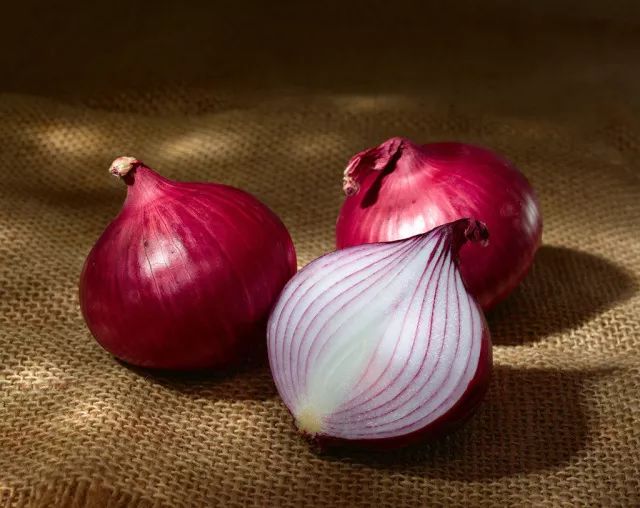
The pungent aroma has a dispersing effect, thus it can stimulate Yang Qi and induce sweating to relieve the exterior. If one has an external wind-cold, using these foods to dispel cold is very effective.
Onion is sweet, slightly pungent, warm in nature, and enters the liver, spleen, kidney, and lung meridians. It has the effects of warming the middle, promoting Yang, regulating Qi, and aiding digestion. However, its primary function is still to disperse wind-cold. If you have a cold and feel cold but do not sweat, consuming more onions or drinking onion decoction can quickly alleviate symptoms of no sweating and nasal congestion.
However, those with internal heat should avoid onions. I know a friend who coughs every time he eats onions, regardless of the amount. This is because he has internal heat; consuming onions only adds to the heat, leading to coughing.
Scallion — Releases the Exterior and Promotes Yang
Scallions are pungent, slightly warm, and have the effect of releasing the exterior and promoting Yang. There is a saying: “Scallions irritate the eyes, garlic irritates the heart, and chili peppers irritate both ends.” The pungent flavor of scallions can help the body expel exterior cold, thus alleviating symptoms of cold and flu.
When treating colds, we usually use the bulb part of the scallion, which is commonly referred to as the scallion white. Scallion white enters the lung and stomach meridians, and the Compendium of Materia Medica states that scallion white “is effective for treating cold and heat, and for inducing sweating in cases of wind-cold.”
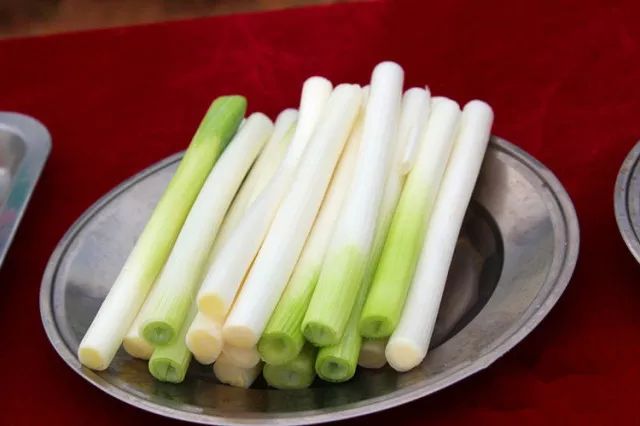
When experiencing a cold, boiling scallion white in water and drinking it hot can help induce sweating, alleviating nasal congestion and cold symptoms. A folk remedy is the “three root soup,” which uses scallion roots, cabbage roots, and radish roots to make soup, also serving to treat mild colds, similarly dispersing exterior cold.
In fact, Traditional Chinese Medicine has long utilized scallions. Zhang Zhongjing was an expert in using scallion white. For example, in the Shanghan Lun, he mentions scallion white in several places, the most famous being the Bai Tong Decoction, where scallion white is a key ingredient. This formula treats the Shaoyin syndrome, where Yin is excessive and Yang is constrained. In this case, the internal Yin cold is excessive, rejecting the deficient Yang outside, creating a critical condition. Zhang Zhongjing used scallion white to open the upper and lower pathways, breaking the Yin-Yang constraint, thus restoring Yang Qi and harmonizing Yin and Yang.
Understanding this principle helps us appreciate why Chinese people often add scallions to their dishes. While the flavor is one reason, another is that it can help regulate Qi and harmonize Yin and Yang, showcasing the wisdom of our ancestors. The principles of health preservation are embedded in our daily lives, and we must not overlook them.
Exciting Article Recap
“Illustration of the Sequence of Internal Changes in Dan Dao Cultivation”
The foundation of tonifying Qi and blood is nurturing the spleen and stomach
Kidney Yang Deficiency vs. Kidney Yin Deficiency | Liang Dong in conversation with Xu Wenbing
Getting Out of the Misunderstanding of Pinching the Spine
Women in Menopause Have Many “Privileges”
Treatment Methods for Rotavirus and Autumn Diarrhea – The Magical Wu Ling San
Diagnosis of Cold Damage by Tongue: Two Practical Methods for Cold Damage Tongue Diagnosis and Treatment
Essential for Beginners: 200 Must-Learn TCM Terminology
My Experience with Sitting Meditation – Initial Connection with Meridians
After Three Years of Graduating with a TCM Doctorate, I Finally Decided to Return to the Community
Exit of Liver Qi – Fengchi | Liang Dong in conversation with Xu Wenbing
After Six Months of Moxibustion, Uterine Fibroids Disappear
Liu Shaokun: The Abdominal Examination I Must Check in Clinical Practice (Video)
Pointing to the Armpit Improves Children’s Sleep
Magical Three Bean Drink, Stops Night Cough in One Go
Licorice Decoction Can Treat These 11 Skin Diseases When Used Properly
Every Emotional Fluctuation is an Opportunity to Achieve Yourself
Morning Tuning of Heart and Lung, Afternoon Gathering of Yang, Evening Tuning of Liver and Kidney for Longevity
Millennia of Misunderstanding: Eating Ginger at Night is Like Poisoning Yourself
Never Take Anti-Inflammatory Drugs Recklessly
========== END ==========
Warm Reminder:This platform shares health-related graphic and textual information for reference and learning only, and it is not a basis for medical diagnosis. Please use under the guidance of a physician if needed.
⊙ Copyright Statement: The article is sourced from the internet. Please contact us for removal if there is any infringement.
Better to let medicine gather dust on the shelf than to wish for a world without suffering.
As parents, not knowing medicine is unkind! As children, not knowing medicine is unfilial!
Can’t find a good TCM practitioner? Why not learn TCM yourself!
In the menu of this account, there is a complete introductory series and video series. Everyone is welcome to learn.
Learning Ancient TCM, Inheriting the Shanghan Lun Classic Formulas
Virtue carries all things! Grass, trees, metals, and stones can only remove physical ailments; cultivating oneself and nurturing virtue is the way to dispel inner demons!
Wishing: Peace and harmony in the world, clear sun and moon; timely wind and rain, no disasters; prosperity and peace for the nation, no need for weapons; promoting virtue and kindness, diligently practicing propriety; no thieves or grievances; the strong do not bully the weak; everyone gets their due; no one suffers from illness, and all enjoy wealth and health; longevity and good virtue, starting and finishing well.

